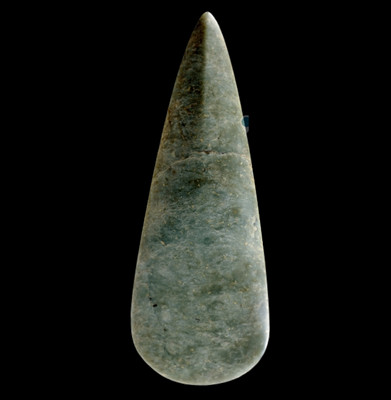This week I've been in Egypt, Mesopotamia, Pakistan and India, seeing how five thousand years ago cities and states grew up along some of the great rivers of the world. We've explored their styles of leadership and their architecture, their writing and the international trading networks that let them acquire new skills and materials. But in the world beyond these great river valleys, the story was different.
本周我一直徘徊于埃及、美索不达米亚、巴基斯坦和印度,亲身体会这些五千年前的城市和国家在一些世界伟大河流的陪伴下繁荣发展的历史。我们探索赋予他们新技能和材料的领导风格及体系结构,他们的文字,国际贸易网络。但世界上除了这些伟大的河谷外,也有着截然不同的故事。
From China to Britain, people continued to live in relatively small farming communities, with none of the problems or opportunities of the new large urban centres. What they did share with them was a taste for the expensive and the exotic, and thanks to well-established trade-routes even in Britain, on the outside edge of the Asian/European landmass, they had long been able to get what they wanted.
从中国到英国,人们一直在相对较小的农业社区生活,没有新的大型城市中心的问题也得不到任何机会。他们所分享的是奢华且独具异国情调的食物味道,甚至由于英国完善的贸易体系,在亚洲/欧洲大陆的边缘,人们长期以来一直能够得到想要的东西。
"I think it's an extraordinarily beautiful object; almost anybody presented with one of these things would just stop in their tracks, they're stunning!"
“我认为这是一件美极了的物品;几乎所有面对的它的人都会发出惊叹,真是太惊艳了!”
We're in Canterbury in this programme, around 4000 BC, where the supreme object of desire is a polished jade axe.
在本期节目中我们将前往公元前4000年左右的坎特伯雷,这件最杰出的物品是一把经过抛光的玉斧。
A history of the world.
世界历史,
In a hundred objects.
百件藏品,
Jade axe approximately 6,000 years old discovered near Canterbury.
在坎特伯雷附近发现大约6000岁的玉斧。













